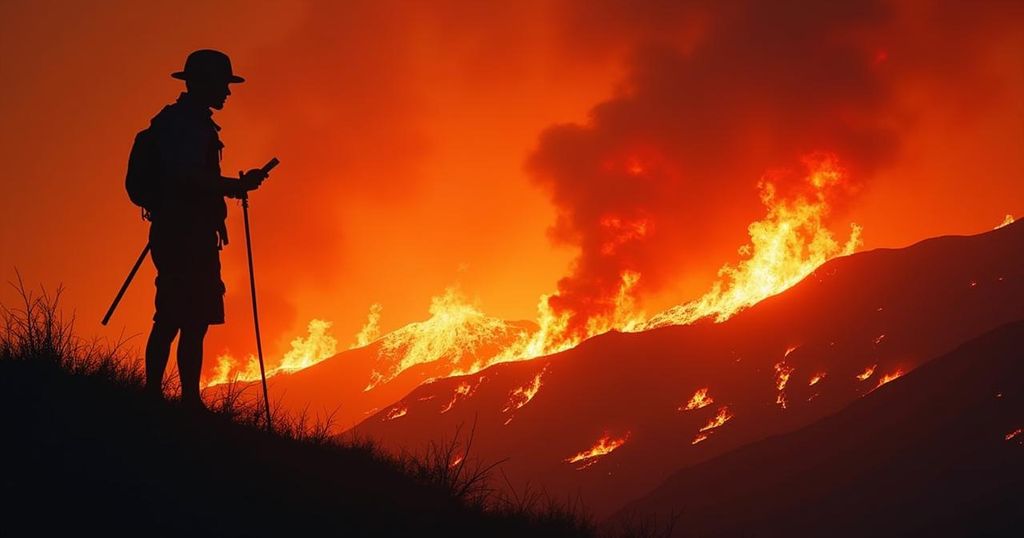Brazil is facing a severe climate crisis characterized by extensive wildfires, prolonged droughts, and damaging floods. The current fires season marks the worst in a decade, with air quality deteriorating and significant health impacts surfacing. While Brazil’s government has aimed to enhance its environmental leadership, inconsistent policies and delayed actions raise concerns about its commitment to effective climate solutions. The upcoming Nationally Determined Contribution offers a chance for Brazil to commit to ambitious emissions reduction targets, yet alignment between rhetoric and practice remains essential.
In Brazil, the nation is currently engulfed in a disheartening scenario of climate emergencies, characterized by hazardous levels of air pollution, visitations from unprecedented wildfires, as well as alarming shifts in weather patterns such as intensified droughts and floods. The situation has reached dire levels, as evident from WRI’s Global Forest Watch initiative, which reported an exceptional rise in fire alerts, marking the highest rate in over a decade. Data shows an alarming 85% increase in fire-affected areas compared to averages from previous years, while incidents of severe flooding similarly disrupt communities. The repercussions of these environmental crises are substantial, impacting human health, agriculture, and biodiversity. With over 80% of the country experiencing droughts—the longest in seventy years—alongside devastating fires, public health emergencies have surged, with significant reports of respiratory illnesses. The environmental fallout extends beyond Brazilian borders, causing regional challenges affecting neighboring countries such as Argentina, Paraguay, and Bolivia. Despite President Lula’s administration making strides in recognizing scientific factors of climate change and increasing financial allocations for firefighting efforts, Brazil’s potential role as a global leader in climate action is hindered by significant inconsistencies. The establishment of new agencies, such as the National Climate Authority, raises questions regarding their effectiveness and clarity of purpose. Meanwhile, plans such as expanding oil exploration and constructing the BR-319 highway heighten concerns about further environmental degradation. Additionally, there exists a pressing necessity for a concerted approach toward aligning decarbonization efforts with economic advancement, especially as Brazil aims to enhance its contribution to international climate agreements. Brazil is presently drafting its new Nationally Determined Contribution, wherein adopting robust greenhouse gas emissions reduction targets is imperative. However, without coherent strategies reflecting its environmental aspirations, Brazil risks falling short of its objectives.
Brazil has become a focal point in discussions regarding climate change due to its vast rainforest, agricultural output, and diverse ecosystems, which are now facing unprecedented challenges from climate change. Current crises, including rampant wildfires, severe droughts, and flooding, showcase the alarming progression of climate hazards affecting urban and rural communities alike. With research identifying human activity as a primary driver of recent environmental destruction, the government faces scrutiny regarding its climate policies and the efficacy of its planned initiatives.
In summary, while Brazil has the potential to emerge as a leader in climate action, much relies on the government’s ability to navigate the political landscape, implement effective policies, and align economic growth with environmental sustainability. Addressing the intertwined issues of deforestation and greenhouse gas emissions is crucial, as well as enhancing the resilience of communities against ongoing climate challenges. To pave the way forward, Brazil must convert its environmental pledges into tangible actions, fostering interdisciplinary collaboration and decisive environmental governance.
Original Source: thecityfix.com







